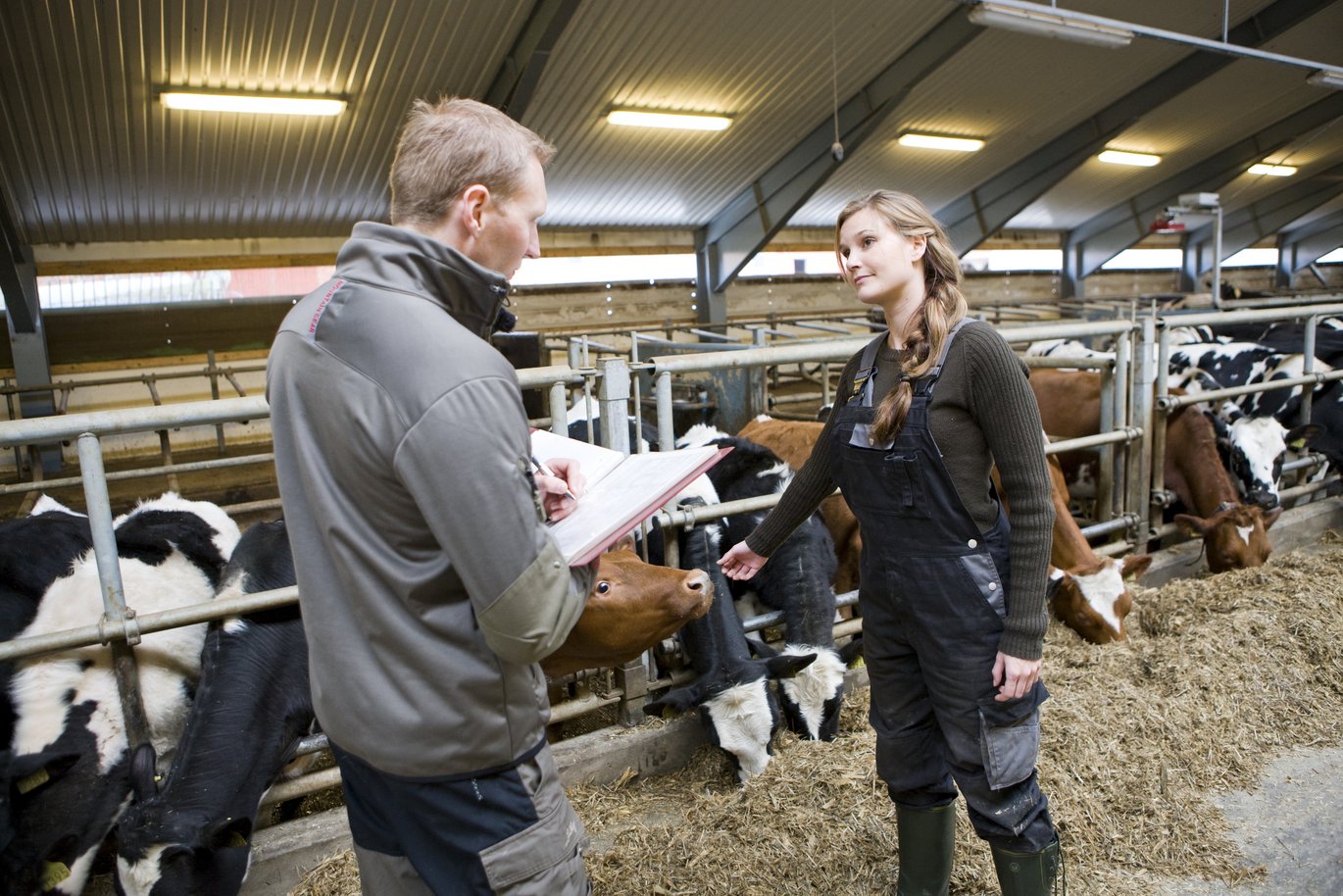Animal welfare inspections: Necessary, but unfair
Farmers consider animal welfare inspections by authorities to be a necessary precaution, but one that can be both frustrating and unfair.

Say the word ”animal welfare” to a farmer, a consumer and an authority and you will get three different responses, as they each have a different approach to the concept. The farmer is focused on production and effectiveness, the consumer on how they think the animal's experience is and the authorities on whether the current regulations are being complied with.
How does the interaction between farmers and authorities work in connection with the inspection of animal welfare on the farms? This is what scientific assistant Inger Anneberg has investigated in her PhD thesis.
With a growing focus on animal welfare in Denmark and the rest of the EU, there is a need for farmers and authorities to have a positive and constructive interaction, not just for the sake of the animals, but also in order to satisfy the wishes of the consumer and the needs of the farmer.
Unwanted visits
Animal welfare gives rise to new demands. Laws, rules, notices and recommendations from the government rain down over the farmer, and inspections are required in order to ensure that rules are obeyed. Since 2004, the number of unannounced inspections of livestock farmers by the animal welfare control department of the Ministry of Food, Agriculture and Fisheries has seen a sharp rise.
These inspections are not always welcome – but why is that?
- I wondered why the farmers are seemingly irritated by – or uncomfortable with – the inspections that are carried out in order to check that animal welfare is taken care of. And why are farmers so defensive when questions about animal welfare crop up, asks Inger Anneberg.
Straight from the horse's mouth on the farms
Wearing rubber boots and overalls, Inger Anneberg travelled out to the farms to get under the skin of the farmers and authorities. She listened in when inspectors visited the farm and wielded both broom and feeding shovel side by side with the farm workers on pig and cattle farms.
- As a consequence of the increasing focus on animal welfare on Danish livestock farms, the number of conflicts between farmers and authorities has also increased, says Inger Anneberg.
One of the paradoxes is that farmers would like the inspections to be standardised and completely identical for all, but that the farmers at the same time express the belief that their own practices work better than if they changed their methods in order to obey regulations.
The farmers understood that the inspections were necessary in order to avoid cheating, but believed that the inspections were unfair and that errors could always be found if the inspector was determined to find some.
Farmers work with animals on a daily basis, and have built up tacit knowledge and experience of the handling and understanding of animals. They also exchange experiences with other farmers and with vets and agricultural advisers. On the other hand, farmers need more knowledge of the dense forest of legislation in this area.
- The farmers that I spoke to in my investigations were not looking for information on animal welfare in a general sense. Instead they sought concrete information regarding the laws on the subject so they could adapt their own systems, buildings and management to fit. I believe this is the area that should be focused on, says Inger Anneberg.
Objectivity, adaptation and consideration
Another area requiring more attention is whether the way inspections are carried out can be adjusted. In its current form, if farmers transgress the regulations, they not only risk being reported to the police or are fined, but they also have their EU subsidy reduced. This is obviously a negative experience for the farmer.
The inspectors can also be put in a bit of a dilemma, as they have to determine whether the regulations are being obeyed to the letter and note down any errors, while also wishing to start up a dialogue with the farmers on how to deliver the best animal welfare within the existing framework on the farm.
- An alternative approach to the inspections would be to not just focus on whether the farmers are obeying the rules, but also to motivate the farmer. One might for example develop more interactive inspections where the differences between farmers and their practices are taken into consideration, says Inger Anneberg, who continues:
- This can only be done, however, if you give the inspectors both more time to do the job and good communication skills that make dialogue more likely.
Inger Anneberg defended her PhD on 30 January at AU Foulum.
Further information: Scientific Assistant, PhD Inger Anneberg, Department of Animal Science, email: Inger.anneberg@agrsci.dk, telephone: +45 8715 7854, mobile: +45 2174 5708
